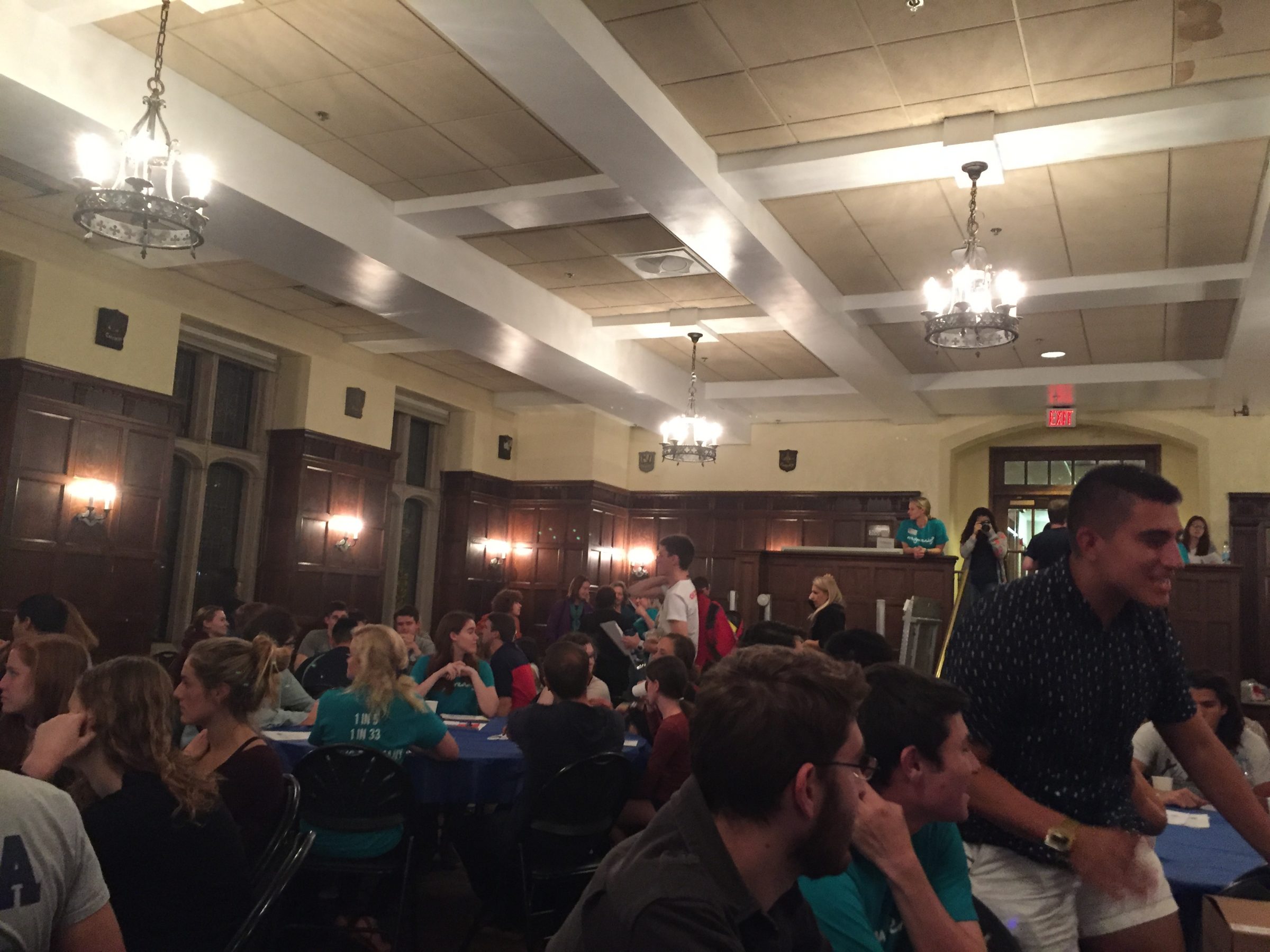The 13th annual Are You Ready program, which is aimed at addressing the issues survivors of sexual assault and their allies encounter, took place on Oct. 7 in Copley Formal Lounge. A talk by Kelly Addington and Becca Tieder, childhood friends and founders of the organization One Student, a nonprofit that empowers student survivors and allies to pursue social change, was followed by small group discussions led by students trained in facilitation and sexual assault issues. Health Education Services, Residential Living, Counseling and Psychiatric Services (CAPS), the LGBTQ Resource Center, and the Women’s Center sponsored Are You Ready.
This year’s event comes after the university signed a Memorandum of Understanding (MOU) on Sept. 14 promising to make changes regarding sexual assault policy on campus, including increasing bystander intervention education for all students, setting deadlines for the hiring of a Title IX Coordinator, and increasing awareness of survivor resources. Student activists began conversations about sexual assault this summer that led to Georgetown’s efforts to fulfill their Title IX obligations and institute best practices.
Health Education Service’s new Gender Violence Program Coordinator Leah Burgess said that although the event organizers took into account new policies and the MOU, the professionals working on campus sexual assault are continuing to meet the needs of survivors as they always have. She also pointed out that the funding for her new position was allocated due to the efforts of students. “That speaks to a level of care, that staff and overall leadership of the university are interested in providing top-notch services,” she said.
Facilitator Sarah Rabon (COL ‘16) said that he conversations started this summer have increased some students’ desire to engage. “I do think things blowing up on social media and more articles about it in student newspapers do make the discussions happen more often and more organically, which I think is a positive change.”
The two speakers discussed Addington’s personal experience with sexual violence in her senior year of college and Tieder’s role as a supportive friend in the aftermath of the assault. Both took turns narrating the events that led them to educate others about issues of consent and sexual violence. The speakers emphasized the importance of their own friendship, and spoke more generally about supporting survivors and bystander intervention.
After the event, Tieder spoke about how the two came to develop their message and strategies, and about the difficulty of beginning conversations about sex. “We realized that the biggest problem wasn’t that people didn’t want to talk about sexual violence, [it was] they just didn’t have the tools,” said Tieder.
Tieder and Addington aim to give students the means to begin these conversations with their nonprofit One Student, which provides resources to students and allies to bring about social change. “We saw an opportunity to share a very personal experience that became our public mission because we felt like doing that is the only way that we can help shift the culture,” said Addington.
This year’s Are You Ready was the first to include two speakers in the program, a change which expanded the conversation to include the experiences of survivors’ friends and allies. Attendee Grace Smith (COL ‘18) said, “I found it especially meaningful at the end when they addressed how to be an effective ally and, in doing so, keeping the focus on the survivor.”
According to event organizers and facilitators, Are You Ready is intended as both an introduction to campus sexual assault issues and as a safe space to begin conversations surrounding issues of consent and sexual violence. Facilitator Maddy Moore (SFS ‘17) described Are You Ready as an introduction to campus sexual assault issues, a conversation that is especially useful for new Georgetown students. “You’ll see a lot of first years and sophomores coming in and that’ll be their introduction to sexual assault at Georgetown and what the school is doing programmatically to address it,” she said.
Both Moore and Rabon observed a shift in the discussions from when they began facilitating at Are You Ready, which they attributed to the two year old New Student Orientation program I Am Ready. Moore noted that the name recognition of the event has grown since her first year at Georgetown. “People are coming in with a lot more information, a lot more vocabulary to talk about these kinds of things, for a lot of people they’ve had these conversations before, which was not necessarily the case in years past,” said Rabon.
In discussing how colleges can address sexual assault, Tieder and Addington stressed a bottom-up approach that comes from students. They praised Are You Ready for its organizers’ willingness to evolve according to students’ needs. “I think when you do something that really speaks to your community, no matter how small or big that is, those are the successes that we see,“ said Addington.
Smith said that Georgetown can improve its sexual assault prevention by continuing dialogues similar to Are You Ready throughout the whole year and for all students. “I think Georgetown can continue to mandate these conversations during events like NSO but also outside, just in daily life, ensuring that these conversations don’t die out,” she said.






